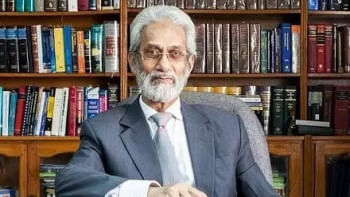Time Rahul stepped up to the plate

Here were expectations that the aggressive Congress Vice President Rahul Gandhi might lead the attack on the Modi government in Parliament during the current budget session going by his aggressive postures outside on the JNU sedition issue as well as the death of Dalit student Rohith Vemula in Hyderabad University. But he remained silent during the debate.
Why was he silent? Rahul Gandhi claimed that the Modi government was scared and would not allow him to speak in Parliament. "The government said they are open to a discussion. Yes. But they will not let me speak in Parliament. I will speak (in Parliament) but they will not let me speak because they are scared of what I will say." If this is true, then how does Rahul propose to counter the government?
In past sessions, Rahul, a parliamentarian since 2004, had not distinguished himself for regular attendance. Nor was he known for participation in Parliament debates - his speeches in the house have been few and far between. Even after Modi took over, Rahul had not made a mark in the House until his aggressive speech on Modi's suit boot ki sarkar. He spoke for the first time from the opposition benches - on the agrarian crisis - after his much publicised return from a sabbatical on April 20, 2015. It was an aggressive speech which brought cheer to the Congress. Party MPs expected him to repeat this performance.
There are some who feel that he missed an opportunity to counter the attack by the government on Vemula's death and the JNU sedition issues. In both these cases, he had shown a keen interest and expressed his solidarity by visiting Hyderabad and the JNU campus and had sat with the protesters. The Congress wants him to be a youth icon, and he has been targeting this constituency since he joined politics in 2004. The Congress was not isolated on either issue as the entire opposition had taken it up.
Where Rahul failed was in speaking inside the House, the only place where ministers are held accountable. Perhaps it was a calculated strategy for the Congress to field Jyotiraditya Scindia who made an effective speech on these issues with Rahul sitting next to him. Even when he was attacked by BJP leaders for sitting with the JNU students, whom they called "Maoists", or during the frontal attack by HRD Minister Smriti Irani, Rahul did not offer a counter. Perhaps the Congress strategists did not want him to be at the receiving end of attacks, as they were already making him a party to the JNU agitation.
Moreover, Irani has been projecting herself as his main challenger by visiting Amethi many times while Rahul is pitting himself against Prime Minister Modi. He obviously decided not to get provoked when fingers were pointed at him as well as his family, including allegations by aggressive BJP leaders of the role played by Pandit Nehru in the Kashmir issue.
Congress insiders say that Rahul would intervene later but will that help? Had he initiated the debate on the Vemula and JNU issues in the Lok Sabha with the same vigour which he has shown outside the Parliament, it would have sent a very strong signal not only to his party leaders, but also to party workers, and added to his stature. A recent India Today poll suggested that his image was growing fast as a challenger to Prime Minister Modi and there is no doubt that his visibility has increased and he is getting more space in the media.
If Rahul means business, the first thing he has to do is to lead from the front. Where else can he do this than in Parliament? Speaking in the House and playing the role of an "angry young man" could benefit him.
The second thing he has to take care of is the matter of regular attendance. Rahul's Parliament record so far is not much to speak of. When he comes to the Parliament, he gets the chance to interact informally with not only the opposition but also the treasury benches. His great grandfather was said to be a regular in the Parliament, who would never miss important speeches.
The third thing he needs to do is mobilise the opposition and prove that he can lead. Sonia Gandhi did that by making senior politicians like Jyoti Basu and Karunanidhi accept her leadership of the United Progressive Alliance in 2004 . The time is ripe for Rahul to seize this opportunity and show his mettle.
The fourth thing he needs to keep in mind is that instead of giving a television bite here and there, he should have more media and public interaction, particularly when the party is in the opposition. This will benefit in the long run.
The problem for both the Congress and the BJP is that the Congress continues to behave as if it is the ruling party while the BJP has not been able to get out of its opposition mode. So they both end up playing the wrong role. This mindset has to change.
The writer is a political commentator and founder member of the Indian Women Press Corps.
Copyright: The Statesman/ANN


 For all latest news, follow The Daily Star's Google News channel.
For all latest news, follow The Daily Star's Google News channel. 



Comments